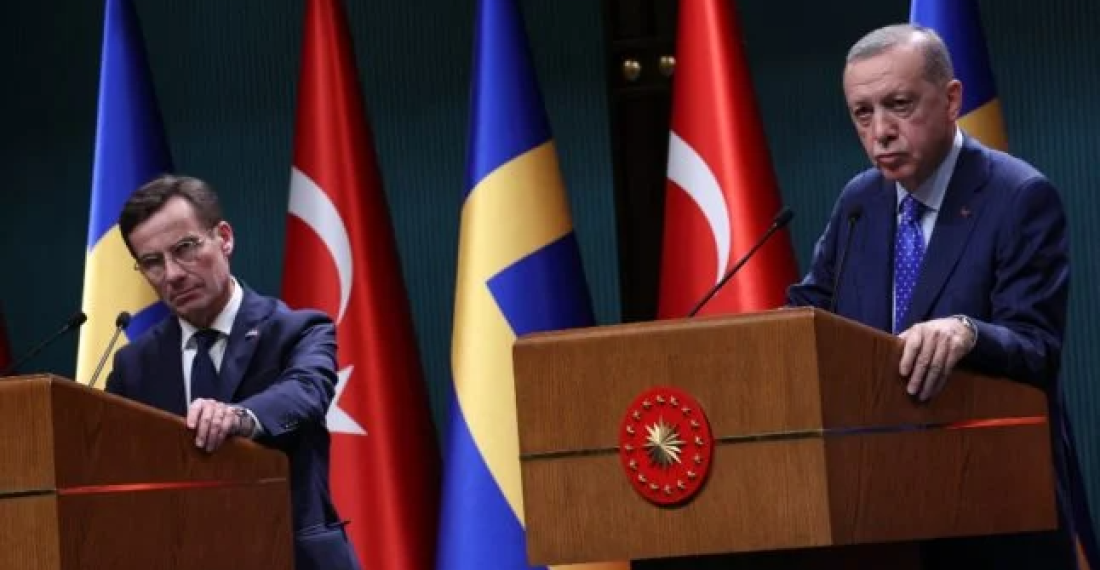The President of Turkey, Recep Tayyip Erdogan, has said that Sweden should not expect support from Ankara over its bid to join NATO following protests in Stockholm at the weekend.
Surrounded by police for his protection, on Saturday (21 January) Danish-Swedish, far-right, anti-Islam activist Rasmus Paludan burned the Quran outside the Turkish Embassy in Stockholm while making disparaging remarks about immigrants and Islam. This incensed President Erdogan who criticised the Swedish authorities for letting the stunt happen.
“It is clear that those who allowed such vileness to take place in front of our embassy can no longer expect any charity from us regarding their NATO membership application,” Erdogan said on Monday (23 January).
Another bone of contention between Sweden and Turkey regarding the former's accession to NATO concerns the Kurdish question. Later on Saturday following Paludan's stunt, there was a pro-Kurdish demonstration in Stockholm where flags of various Kurdish groups were waved, including that of the Kurdish Workers' Party, or the PKK. The PKK has waged a decades-long insurgency in Turkey, and although it is considered a terrorist group by Turkey, the United States and the European Union, its symbols are not banned in Sweden.
In the same speech, Erdogan said: “So you will let terror organisations run wild on your avenues and streets and then expect our support for getting into NATO. That’s not happening.”
In a tweet on Saturday, Swedish Prime Minister Ulf Kristersson criticised Paludan for the stunt while defending his right to freedom of expression. He said: "Freedom of expression is a fundamental part of democracy. But what is legal is not necessarily appropriate. Burning books that are holy to many is a deeply disrespectful act. I want to express my sympathy for all Muslims who are offended by what has happened in Stockholm today."






